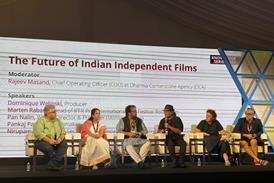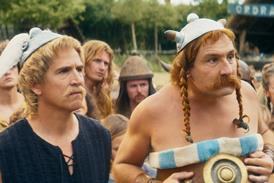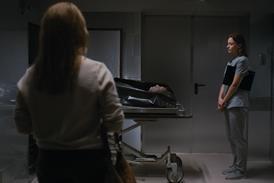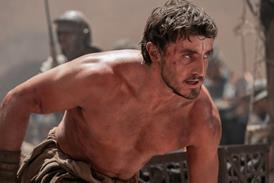Dir: Francesco Patierno. Italy. 2003. 94mins.
For really vibrant Italian cinema, it is not a bad idea to look away from the industry hubs of Rome and Milan. Naples, in particular, has built a healthy homegrown scene around such directors as Mario Martone (L'Amore Molesto) and Antonio Capuano. Newest boy on the block is Francesco Patierno, whose first feature, Pater Familias, screened in Panorama at this year's Berlinale before heading for the Hong Kong International Film Festival next month. It is an impressive debut, similar to Capuano's Luna Rossa in how it grafts Greek tragedy onto a tale of everyday Neapolitan misery. But unlike Capuano, Patierno keeps his feet on the realist floor, bringing a real gritty truth to bear on his study of a young man's struggle to escape the Camorra-infested criminal quicksand that has engulfed most of his friends. Pater Familias is too grim and too low-budget to do more than small business at home, where it has taken $28,350 from 15 screens (it opened on two) after 10 days. However, this body-blow debut might still have a limited arthouse impact on overseas.
Matteo (Iacuzio) is released from prison for 24 hours so that he can visit his dying father. In a series of flashbacks that confuse at first, the audience realise not only why Matteo is behind bars, but what has happened to the gang of scugnizzi (Neapolitan youths) he used to hang out with. Antonio wanders the streets of this no-hope excuse for a village on the edge of Naples' urban sprawl, meeting the hard-bitten, chain-smoking priest and other local characters. It soon becomes apparent that prison has kept Matteo alive, while his four friends are all dead.
One of the few survivors of his past is Rosa, the girl he should have had but did not, now locked into a loveless and abusive marriage. Matteo uses what is left of his day out to do one good thing for Rosa and her daughter.
There is no room for irony in Pater Familias, unless it is of the tragic variety. The audience can either snigger at the doom-laden bleakness of it all (whenever a family sits down to eat most of the food ends up on the wall); or be swept up by the nihilism, which become quite enjoyable after a while.
The camera homes in from a distance through cramped courtyards, over moving cars, through crowds of people, through grates and bars especially; even the sound recording seems to be done from a distance, making it difficult at times to hear the dialogue. Although not every shot comes off, it is heartening to see an Italian director playing with camera angles and film stock in an industry dominated by the flat televisual look; and it is good to see a bunch of Italian actors - many of them first-timers - who look like they have lived the lives they are portraying.
Prod co: Kubla Khan
It dist: Istituto Luce
Int'l sales: Intra Movies
Prod: Umberto Massa
Scr: Patierno, Massimo Cacciapuoti
Cinematography: Mauro Marchetti
Prod des: Gianfranco Danese
Ed: Luca Gazzolo
Music: MUM/Lamb
Main cast: Luigi Iacuzio, Francesco Pirozzi, Domenico Balsamo, Federica Bonavolonta, Cristiana Liguori, Pasquale Russo, Antonella Migliore, Michelangelo Dalisi


















No comments yet